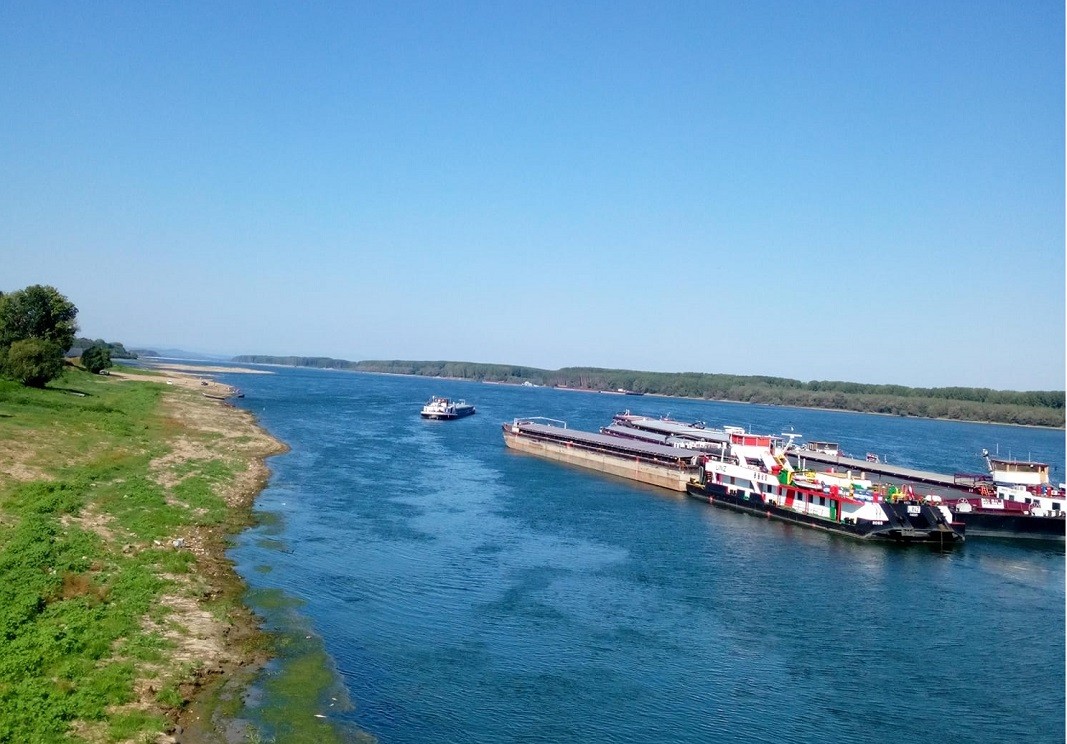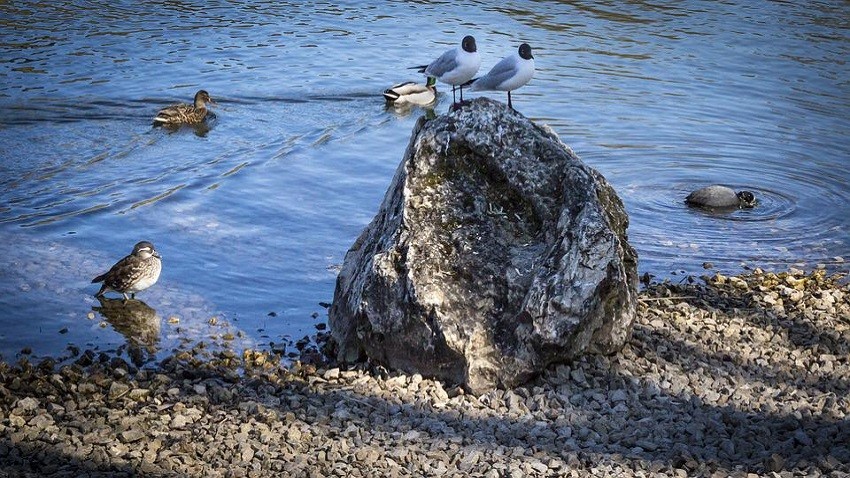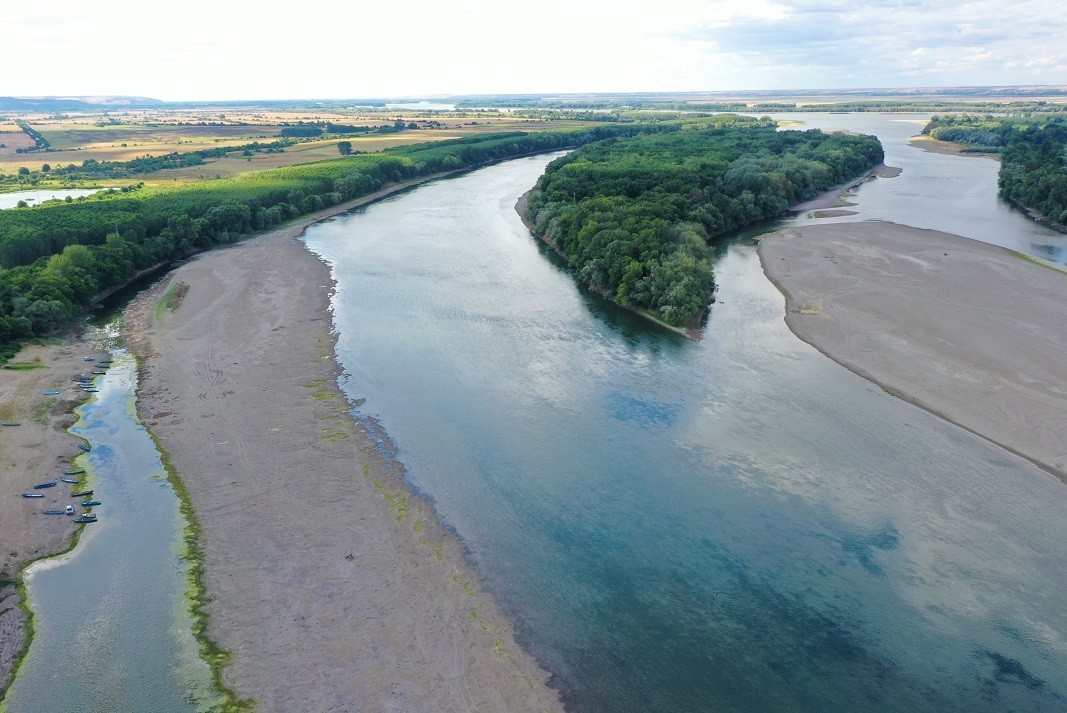Drought, which has swept across Europe, is a growing concern for Bulgarians living along the Danube. The low water level of the river is causing extreme losses to shipping. Hundreds of self-propelled and nonself-propelled vessels are waiting in the Bulgarian-Romanian stretch of the river, and forecasts are not at all optimistic. Waters are also running low in the middle and upper reaches of the river because there is no rain in the catchment area and tributaries cannot fill one of the major European waterways.
"The water level is unusually low. I have been in the administration for more than 10 years and I can say that there has never been such a long period of drought," said Captain Tony Todorov, Head of Directorate "River supervision - Lom" at the Maritime Administration. The consequences of the low water of the river are multifaceted and affect various industries, shipping and irrigation most of all.
"Shipping conditions are definitely not good," said Capt. Todorov. - There are four sections that are problematic in terms of depth, according to the Romanian authorities who are responsible for them.
Currently the two shallowest spots are near Bogdan Sechen and Dobrina Islands - they are 1.60 m and 1.80 m deep respectively," he told BNR Vidin, adding that there is no information about stranded vessels in the Region of operation of the Port of Lom Branch.

The residents of Vidin, who live along the big European river, are also worried. They recall past periods of drought:
"I remember that navigation nearly halted a few years ago. I hope it will rain and the river will fill up a bit," a citizen of Vidin told BNR.
"No, I don't remember the level being that low," says a worried woman from Vidin.
There have been years when ships have not sailed because the level was low. Now there are fish, my nephew goes fishing and catches a lot of fish. This year there was no snow, no rain and that's why the level is so low".
"It's really problematic both for irrigation and for the nuclear power plant in Kozloduy, drought damages everything. It is everywhere."
The low water level in the Danube also affects the ecosystem as a whole. Valentin is a long-time fisherman from Vidin. Although he is already retired, he doesn't miss a day by the river with his fishing rod:
"The fish come out in the morning, usually at 7.00, it's daylight, and at 9.00 A.M. they stop pecking. At dusk it's biting again, we're here at these spots every night. Now they've spoiled the bank here. There used to be plenty of fish, but since they made this bank with these rocks, they've spoiled the good fishing spots ... There's been low water before, but this time it has lasted a long time. It's a lot of water, the Danube, not like some tiny creek or lake, and it's dried up. There is enough water, but the fish run to the deep, because the weather is hot"- said the fisherman from Vidin.

Apart from being detrimental to human activities, the drought also directly puts at risk the animal and plant diversity along the river, as it is particularly devastating to the wetlands and the waterfowl that nest there. This situation is caused by complex reasons, Stoyan Mihov, Freshwater Program Manager, WWF-Bulgaria, explained to BNR.
"It is mostly related to the severe drought and high temperatures since the beginning of the year in Central and Eastern Europe, where the Danube River originates. Unfortunately, the consequences are rather serious for all the animals and plants that are directly dependent on the water in the Danube. It is particularly bad for the wetlands and the waterfowl that nest in them, because in the spring, the river level was so low that it failed to flood the wetlands along the Danube and the birds were unable to nest. This is a serious problem, because the majority of waterfowl are in danger of extinction precisely because their nesting sites have dried up.

The drought has affected many agricultural areas since irrigation from the Danube now is impossible, especially in places without pumping stations. People's water wells near the river are almost completely dried up as they are directly connected to the level of the Danube. Low level and high water temperatures are a problem for the nuclear power plants that are cooled by the river waters, warn reports from several countries. The problems are multifaceted, but this situation is also linked to global climate change.And the forecasts are not very good, as our area is in one of the highest levels of drought projected for the next 20-30 years," Stoyan Mihov said.
Interviews by Plamen Kotsev, BNR Vidin
Photos: Victoria Topalska, pixabay, Facebook/riversupervisionlom, WWF
Athens plans to modernise the Greek army by 2030 Greece's Defence Minister Nikos Dendias presented the plan for changes in the army to the parties in parliament. The reforms will cover all three branches of the military. By 2030, 33 units..
A short video kaleidoscope of the "untold stories" of worthy Bulgarians - scientists, entrepreneurs, engineers, artists - who have contributed to our country's good image in the eyes of the world opened an unconventional public forum that showcased the..
The film "Gundi: Legend of Love" caused a sensation across the Ocean. Screenings of the film story about the life of legendary football player Georgi Asparuhov – Gundi were held in Los Angeles and Las Vegas as the halls were full...
The Varna Regional Library "Pencho Slaveykov" has acquired a humanoid robot. It was unveiled by the library's director, Radka Kalcheva, during the..

+359 2 9336 661
